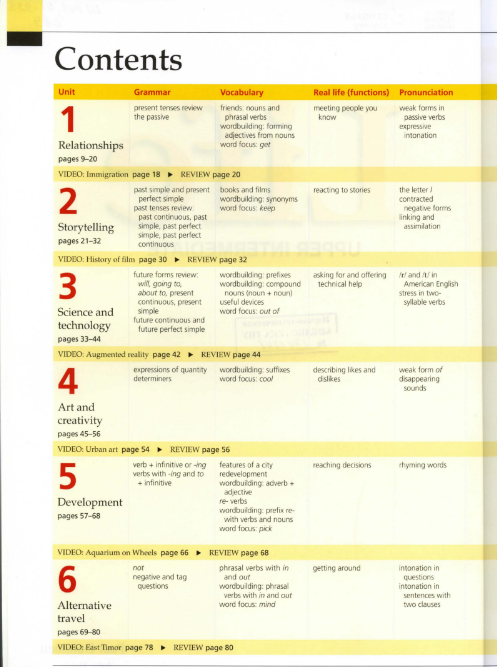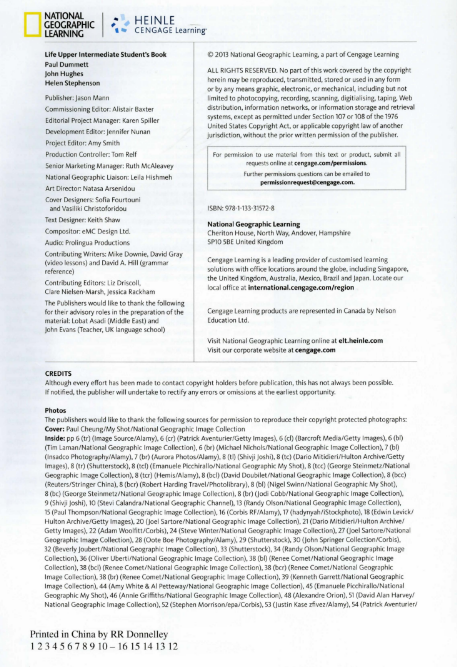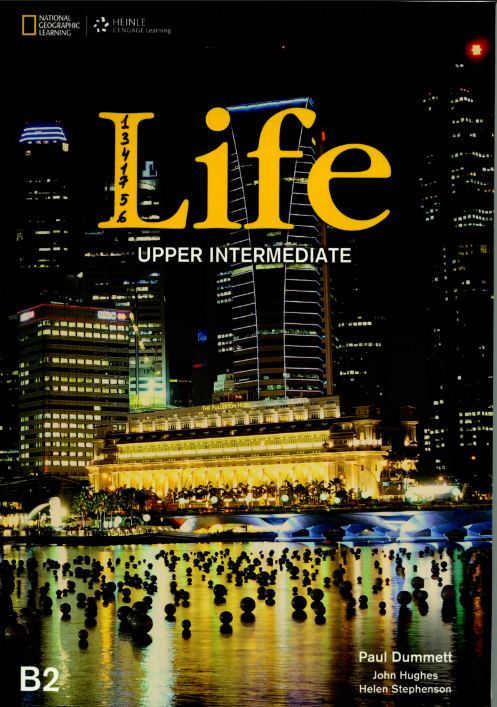


Mục lục
ToggleUnit 1 Relationships
FEATURES
1 Work in pairs. Look at the photo and the caption. Choose the phrase you think best describes the photo.
10 Unlikely friends — Two animals that enjoy each other’s company
12 A confused generation — Changing attitudes among China’s young generation
14 Bloodlines — Two accounts of how family has shaped people’s lives
18 Immigration — A video about how immigrants have helped build America
a faithful companion • blood relatives • a passing acquaintance • mutual respect • a strong bond • true friends • an odd couple
2 Look at these English sayings about relationships. What do they mean? Do you have a similar saying in your language?
- Blood is thicker than water
- A friend in need is a friend indeed
- Like father, like son
- No man is an island
3 Listen to three people talking about important relationships in their lives. Put the number of the speaker (1, 2 or 3) next to the person they are talking about.
- a husband
- a fiancé
- a colleague
- an old friend
- a brother
- a grandparent
4 Think of a person a) you have been meaning to contact for ages; and b) you have shared a travel experience with. Tell your partner about these people.
YOUR FRIENDS — THE GENERATION GAP — FAMILY INFLUENCES — MEETING PEOPLE YOU KNOW — AN INFORMAL EMAIL
1a Unlikely friends
Listening
1 Work in pairs. Look at the photo. Discuss the questions.
- What are the two animals in the photo?
- Are they normally working animals, pets, wild animals or something else?
- What does the photo suggest about these animals’ characters?
2 Listen to an extract from a radio programme about an unlikely friendship between these two animals. What things do they do together to enjoy each other’s company?
3 Listen again and choose the right word to complete each statement.
- Cooperation between animals of different species is not: a) natural b) easy c) usual
- Dogs are usually ___ apes: a) suspicious of b) frightened of c) aggressive towards
- This particular dog and orang-utan behave like ___: a) old friends b) children c) people
- Their behaviour has attracted the interest of many: a) TV viewers b) scientists c) psychologists
- Orang-utans are very ___ creatures: a) physical b) naughty c) kind
- Their relationship is based on a need in both animals to: a) share new experiences b) hunt together c) be sociable
4 Do you believe animals can have friendships? Or do they form relationships only for practical reasons? Do you know other examples of sociable animals? Discuss.
Grammar — Present tenses review
PRESENT TENSES REVIEW
- Present simple: Suriya lives with his keepers.
- Present continuous: The two animals are fulfilling a basic social need in each other.
- Present perfect simple: Suriya has understood that the hound dog is very hungry.
- Present perfect continuous: They have been doing this every day since they first met.
5 Match the tenses (1–4) with their uses (a–d).
- present simple
- present continuous
- present perfect simple
- present perfect continuous
a) highlights a recent activity
b) describes a situation in progress or happening around now
c) describes a permanent / usual situation
d) highlights the present result of a recent past action
6 Choose the correct tense to complete this passage about animal friendships.
A number of recent videos on YouTube showing unlikely animal friends 1 have started / have been starting a debate about animal friendships. Lately many people 2 have discussed / have been discussing a moving film showing a dog making friends with an elephant. Elephants often 3 show / are showing concern for their social group, but there is one extraordinary scene where the elephant becomes distressed when the dog gets injured. The dog 4 has recovered / has been recovering now and the two animals have been inseparable. The question scientists 5 ask / are asking is: is such behaviour normal, or do we just want it to be? Some say it happens when animals 6 have lived / have been living close to humans. No one 7 has provided / has been providing a definite answer, but it seems some animals are naturally sociable. Others, like giant pandas, 8 live / are living more independent and solitary lives.
7 Work in pairs. Explain the use of the verb forms in bold using a–d from Exercise 5.
- We’re not close friends — we’re just studying French at the same evening class.
- I live with Sarah, but each of us has our own group of friends.
- Olivia and I went to Peru and we’ve kept up with each other ever since.
- I wouldn’t say we were friends. We’ve met a couple of times at parties.
- Oh, you know Tom? He’s a good friend of mine. Let’s meet up sometime.
- Jacob always hangs around when he’s bored.
- Kate has always stood by me in difficulty.
- Colin and I have been teaching at the same school for years.
- Barney and I have known each other since school.
- Jessica and I are going for a medieval-style wedding. Themed weddings are becoming fashionable.
Vocabulary — Friends: nouns and phrasal verbs
8 Match each sentence from Exercise 7 with a person from the box.
- acquaintance
- fellow student
- mutual friend
- fair-weather friend
- flatmate
- girlfriend
- old friend
- travel companion
- true friend
- workmate
9 Find the phrasal verbs in Exercise 7. Identify which contain two prepositions.
- 1 verb with get
- 1 verb with stand
- 2 verbs with hang
- 2 verbs with round
- 3 verbs with up
10 Choose the correct phrasal verbs.
- We come from different backgrounds but we ___ really well.
- We don’t need anything special — just ___ each other for a bit.
- I made many friends at university but I haven’t ___ with many.
- Why don’t you ___ to my house for supper?
- Some friends are fun, but real friends ___ you when you’re in trouble.
- I’m busy at six but we could ___ later, maybe 8:30.
Speaking
11 Work in pairs. Think about three of your friends. What kind of friend are they? What do you do together? How similar are your friendships?
1b A confused generation
Reading
1 Look at the photo. Discuss:
- What does it show?
- What’s the matter with the girl?
- Is the situation familiar?
2 Discuss how China’s economic boom has affected younger vs older generations.
3 Read the article and compare your ideas.
4 Find examples in the article of:
- language use
- caring for the old
- parent–child relationships
- shopping
- knowledge of the world
5 Do Bella’s parents accept the changes? Are the changes difficult for Bella?
Grammar — The passive
6 Look at the passive examples (1–6). Decide which statements (a–d) are true.
- Bella is the name she has been given by her English teacher.
- New values are being questioned.
- “Have our lives been made richer?”
- Is Chinese culture being supplanted?
- Western brands are selected.
- Our advice is not listened to.
a) The agent is not the focus.
b) We use from to introduce the agent.
c) The agent is unimportant or unknown.
d) We want to start with known information.
Article
Change brings problems… (full article preserved exactly)
The Passive — Forms
- Present simple passive: I am given / you are given / he is given
- Present continuous passive: I am being given / …
- Present perfect simple passive: I have been given / he has been given
7 Transform the active sentences to passive.
(Full exercise text preserved.)
Wordbuilding — Forming adjectives from nouns
support → supportive
rebel → rebellious
Pronunciation — Weak forms in passive verbs
8a Identify stressed and unstressed parts of passive verb phrases.
8b Practise the sentences.
9 Complete the sentences with the correct tense, active or passive.
(Full list preserved.)
1 c Bloodlines
Reading 1 Work in pairs. Why do you think people emigrate? What difficulties do you think they face when they settle in a new country? Compare your ideas with another pair.
2 Read the article about immigrants in New York. Answer the questions. Then compare your answers with your partner. 1 What is special about the area of Queens in New York? 2 What do Richard and Tanja’s families have in common? 3 What are the differences between Richard’s and Tanja’s stories as immigrants?
3 Are the sentences true (T) or false (F) according to the article? 1 Immigrants in Queens feel attached to their new country. 2 People are much more interested in learning about distant ancestors than recent generations. 3 Some years after immigrating to America, Tomas met his brother in New York by accident. 4 Richard’s grandmother has kept the family history alive. 5 Tanja’s mother wasn’t able to balance work with looking after her children’s education. 6 Tanja and her sister have chosen to have similar careers to their parents.
4 Look at the article and choose the correct explanation of each phrase. 1 a melting pot (para 1) a a place of conflict b a place where all mix together c a place which attracts 2 their ancestral roots (para 2) a where their family came from originally b how they got to America c their parents’ character 3 one recurring theme (para 3) a sad fact b common story c unusual quality 4 seeking his fortune (para 4) a hoping to get lucky b looking for the right job c looking for a way to get rich 5 a must (para 5) a a good thing b a right c a necessity
Critical thinking identifying the main aspect 5 Work in pairs. This article deals with different aspects of emigration. Identify the aspects in each of the first three paragraphs. Compare your answers with another pair to check you have identified the same themes.
6 Read the personal accounts of the immigrants again. Which of the aspects do their stories pick up on? Which aspects are not really mentioned again?
7 Discuss what the main aspect, or message, is of this article. Then ask other pairs if they have reached the same conclusion.
Speaking 8 Look at these phrases from the passage describing family characteristics or traits and discuss what they mean. ‘He was clearly something of a free spirit.’ ‘My parents have a strong work ethic.’ ‘We’ve both inherited that desire to get ahead.’
9 Look at the questions below and note down your answers. Then ask your partner about their answers. Does family have a similarly strong influence in your lives?



